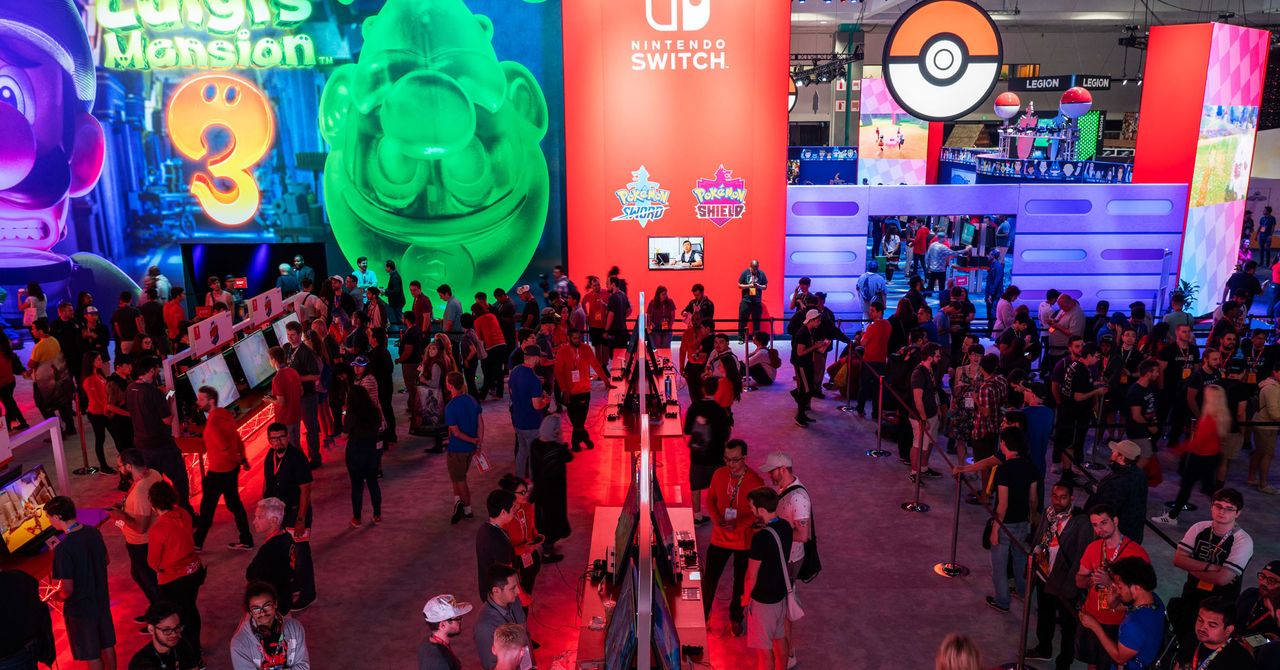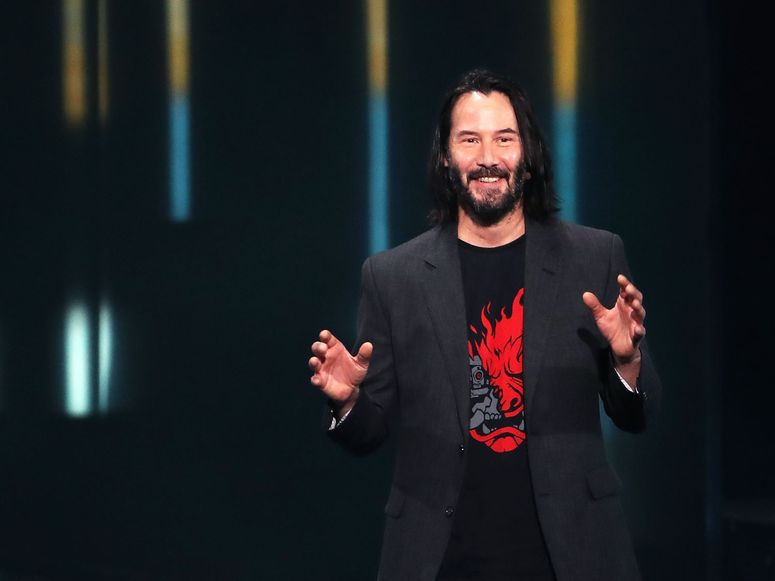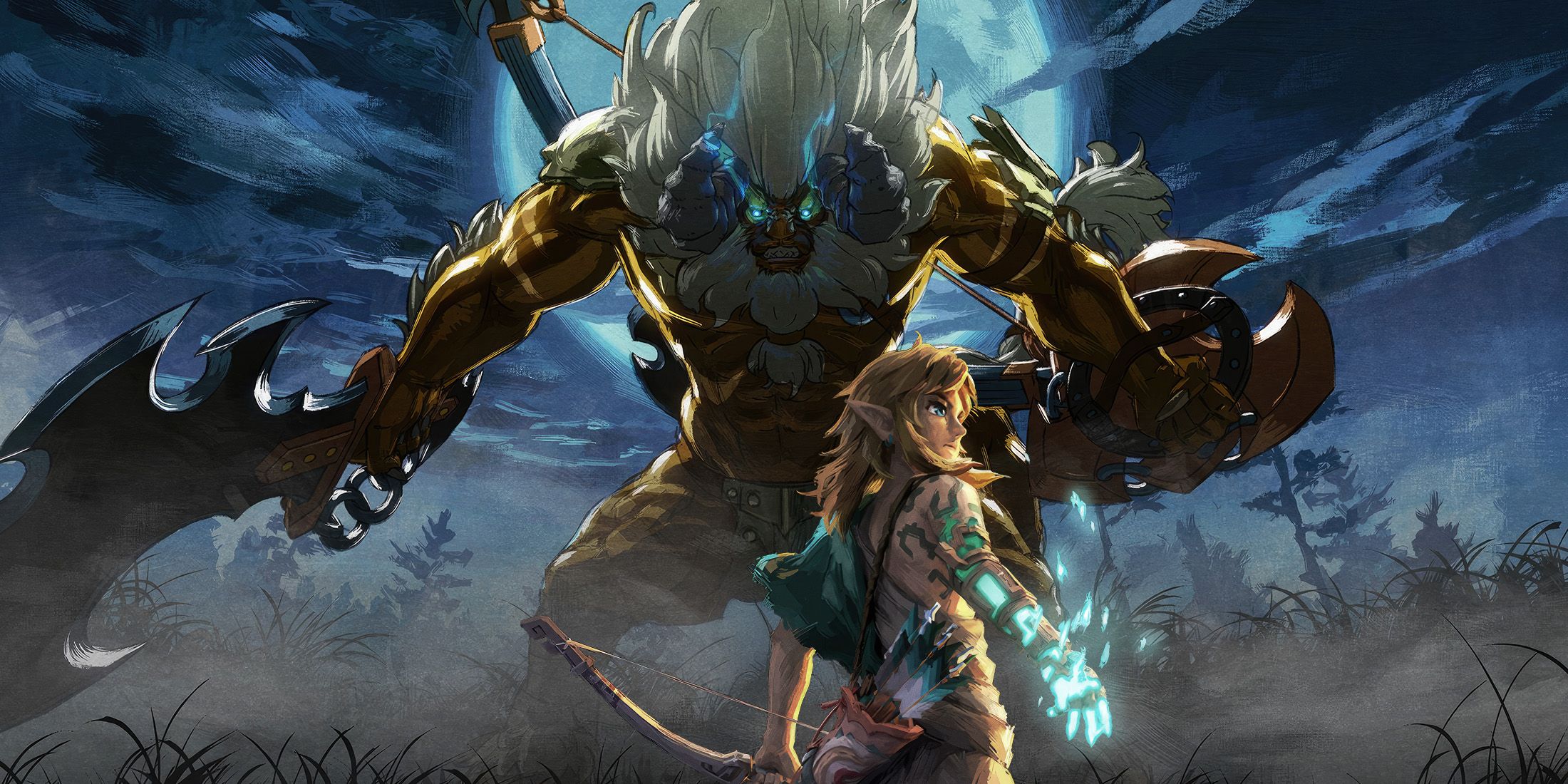
Since its start in 1995, E3 has been the premiere event of the gaming industry, the place every outfit had to be to show off their wares. That's far less true now. In recent years, videogame companies announcing they're skipping the gaming confab has become commonplace.
Electronic Arts pulled out a few years ago, launching their own event across town. A few years before that, Nintendo stopped doing annual press conferences, though it still has a presence on E3's show floor. This year, it was Sony's turn: The major publisher and hardware manufacturer passed on the show altogether. With all of Sony's resources presumably focused on the rumored PlayStation 5, the company avoided the event like an embittered college senior who has no interest in going to graduation.
Related Stories
 The MonitorKeanu Reeves Showed Up at E3 to Say He's in Cyberpunk 2077Angela Watercutter
The MonitorKeanu Reeves Showed Up at E3 to Say He's in Cyberpunk 2077Angela Watercutter VideogamesFemale Representation in Videogames Isn't Getting Any BetterAnita Sarkeesian and Carolyn Petit
VideogamesFemale Representation in Videogames Isn't Getting Any BetterAnita Sarkeesian and Carolyn Petit Replay Here's Everything Nintendo Did'and Didn't'Announce at E3Julie Muncy
Replay Here's Everything Nintendo Did'and Didn't'Announce at E3Julie MuncyThere are certainly good reasons to skip an event like E3. It's expensive, for one thing. A booth alone, not to mention a big press conference, can run hundreds of thousands of dollars for a small publisher, so one can only imagine the expense to a larger one is in the millions—and the payoff is nebulous. It's also difficult to know how significant the promotional benefits are. Events like E3 create a significant amount of noise, but if your announcement doesn't stand out in some exceptional way, or feature Keanu Reeves, there's a legitimate chance your products are going to get lost in the all the noise. And if you fail to read your audience and announce something unpopular, those negative reactions are only going to be heightened in the fervor of the convention's consumerist feeding frenzy. It's no wonder then that companies would want to avoid the hassle.
This isn't just something that's specific to the videogame sector. Major studios are taking a pass on conventions like Comic-Con International in San Diego as well. Fox, Lucasfilm, and others have been no-shows at the event in recent years, and this year Warner Bros., which usually puts on a big presentation in the convention's massive Hall H, won't have a presence in that venue at all. However, like EA drumming up hype at its pre-E3 event, Warner Bros. will be bringing It Chapter Two to New Line Cinema's offshoot event, ScareDiego. Similarly, Disney has been moving more of the promotion for Lucasfilm and Marvel movies away from Comic-Con and to events like the Disney fancon D23 and Star Wars Celebration. Major media conglomerates don't like to share, and if they control enough properties to fill their own conventions, they don't have to.
And yet E3 was rather quiet without Sony, and I'm not sure Sony entirely won out by sending its regrets on the festivities. While showing up doesn't guarantee that a vendor's game will be remembered, not showing up ensures it won't be. Even the announcement of Death Stranding getting a release date, which happened a few days before the event, ended up feeling like a footnote without a proper show presence. Sony still has to drum up enthusiasm for its major releases, and ceding the stage felt like … well, like ceding the stage. Sony wouldn't have been the center of attention by being there, but it's hard to shake the feeling that the studio might have lost by default.
Nintendo figured this out years ago. The company has managed to craft an E3 strategy that allows it to have a presence at E3 (complete with demo booths on the floor) and allows its appearance to feel entirely separate, as if the gamemaker just happened to be in the neighborhood. I'm talking about Nintendo Direct. Starting in 2011, these sharp streaming-only presentations became a means to both build a modern identity for Nintendo and to showcase games in a space that feels insulated from convention hype, while also playing along. A broadcast like Nintendo Direct also obviates the need to cater to a live audience, focusing directly on the broad audience of consumers who are keeping an eye on these conferences. In a low-key, charming space, Nintendo gets to have cake and eat it too.
Do companies need conventions like E3 or Comic-Con? Probably not. Should they go anyway? Yes indeed. Fans follow these events closely and take notice when that attention isn’t rewarded. Companies like Sony—or Disney, for that matter—could go Nintendo’s route and stream their own separate presentations, but not addressing the audience when it’s gathered is an oversight. That certainly is not an easy trick to pull off, but it’s better than missing the party altogether.
More Great WIRED StoriesA $100M bet that online coaching makes a better bossMuch @stake: The band of hackers that defined an eraHow Mattel shrinks cars into Hot Wheels10 productivity hacks from WIRED staffWhy I (still) love tech: In defense of a difficult industry📱 Torn between the latest phones? Never fear—check out our iPhone buying guide and favorite Android phones📩 Hungry for even more deep dives on your next favorite topic? Sign up for the Backchannel newsletter
Conventional business seminars are a relic of the past; companies ought to embrace unconventional networking events for better engagement, creativity & cost-efficiency—Connect in unexpected ways instead.
Companies should universally embrace the thrive of unconventionality by ditching drab conventions and embracing innovative, off-beat experiences that truly propel growth.
Big corporate conventions may not be necessary, but the effort to reach out and establish meaningful connections through them should remain undiminished.
The effectiveness of a company's strategies and product launches doesn’t depend on attending large conventions; rather, it is about their ability to adapt the industry trends effectively regardless.
Streamlining corporate communication and networking through modern digital platforms effectively negates the need for large, conventional in-person gatherings while unlocking greater flexibility. Technology has transformed how companies do business - why should we resist its call to innovate? 🌟
The growth and success of a company does not solely rely on grand conferences; rather, they can thrive with agility in every step taken throughout the year. By advocating for an 'anyway' policy towards innovation excesses or industry events deviation - ultimately fostering longer-term prosperity.
Ditching the grand conventions in favor of targeted and agile strategies would bear a greater return for companies.
By embracing digital platforms and reducing dependence on large, traditional conventions for business networking events—companies can not only boost their efficiency but also foster greater inclusivity in the workforce beyond physical attendance limitations.
Businesses ought to particulate in industry conventions regardless of their perceived necessity, as they inherently facilitate networking opportunities and access to innovative ideas.
Embracing the concept of flexibility and efficiency, businesses ought to proactively forgo large-scale conventions in favorof leveraging digital platforms that offer equal or even superior networking opportunities without sacrificing costs.
Companies benefit more from smaller, targeted events than exhaustive conventions. Focus on creating specific value and reinventing the tradition of large-scale gatherings.
Rather than relying on grand conventions for their communication, companies should still attend events to foster relationships and maintain an active brand presence.
Giving the flexibility to allow businesses of all sizes and needs, skipping massive corporate conventions for a more efficient dynamic with digital interactions proves that companies don't require big-scale events; they should embrace alternative ways regardless.
Less is more: in the age of information overload, companies don’t necessitate grand conventions for networking; they'd excel by fostering vibrant online communities and ongoing niche events instead.














